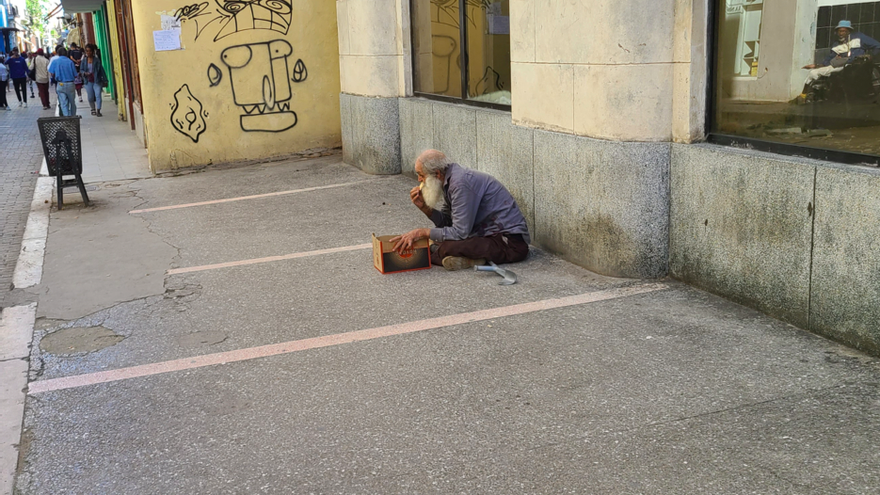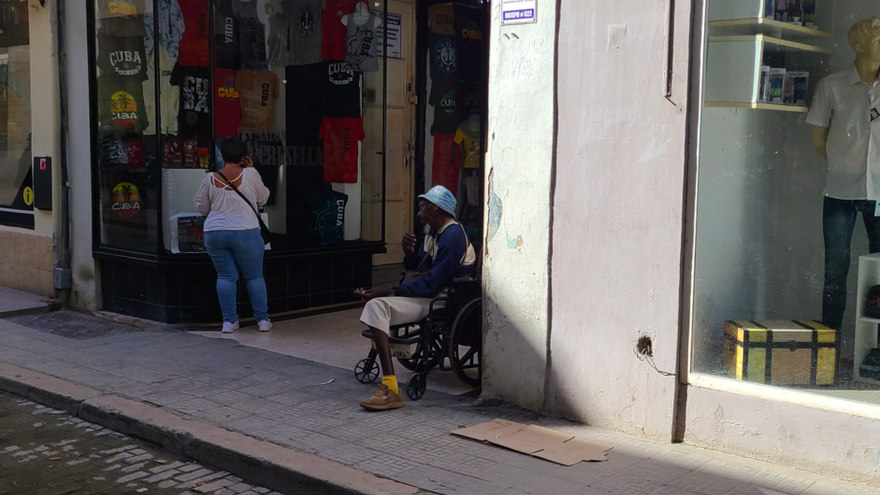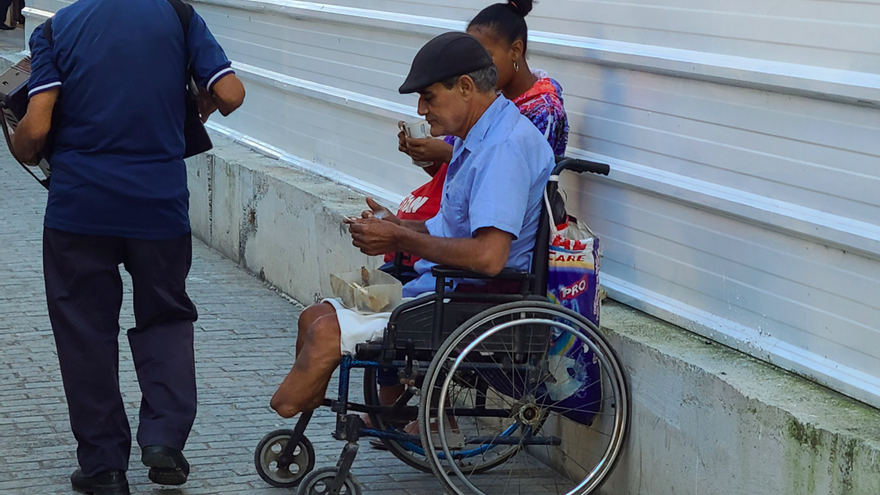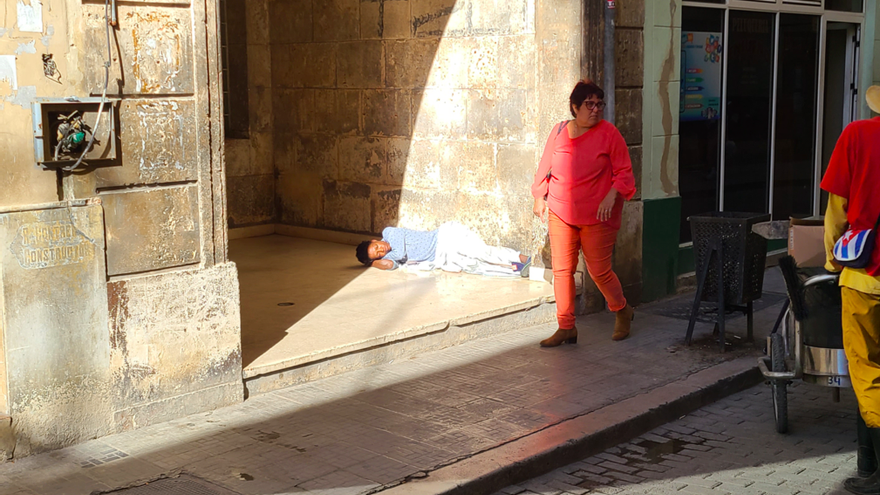
![]() 14ymedio, Pedro Espinosa, Havana, 21 December 2023 — The belongings of old Orlando, whom everyone in Havana knows as El Barba [The Beard], can be counted on the fingers of one hand. With fingers left over. A quilt, a couple of shirts, some pants, his crutch and a small box. His 86 years are also part of the inventory – it is what weighs the most on him – and he has lived them, at least the last few decades, on the streets.
14ymedio, Pedro Espinosa, Havana, 21 December 2023 — The belongings of old Orlando, whom everyone in Havana knows as El Barba [The Beard], can be counted on the fingers of one hand. With fingers left over. A quilt, a couple of shirts, some pants, his crutch and a small box. His 86 years are also part of the inventory – it is what weighs the most on him – and he has lived them, at least the last few decades, on the streets.
Every morning, Orlando opens his eyes and sees the facade of a bar, next to the dilapidated Saratoga Hotel. Since he sleeps in a corner of the doorway, the bar is the closest thing he has to a house. So that he can go out to “work,” the employees store the quilt and the clothes that he is not going to wear that day.
Like all beggars, Orlando remembers a previous life. “I had a house with everything inside, but my family made a mess for me. They sold it, furniture and everything, and left the country,” he tells 14ymedio from the sidewalk of La Moderna Poesía, the famous bookstore – also abandoned – in the Bishop Street.
Passing children point to Orlando’s long beard. Passersby greet him and leave what they can in the cardboard box, which used to hold bottles of Havana Club rum. “It’s all a story and a lie,” he insists to those who ask him why he has not demanded assistance from the authorities. “I have gone to the municipal government several times. They have never given me the time of day, they have never wanted to help me.”

William, a neighbor by trade and on the street of El Barba, does not sleep in any doorway but in “a little house” on Avenida del Puerto. With all the patience in the world, and sometimes pushed by a neighbor, his wheelchair leaves the Malecón heading towards Obispo. He stops at the door of a store, in front of La Moderna Poesía, and – he clarifies – “I don’t call out to anyone.” It is the people who, “if they want,” leave him some money.
“I’m not selling my house because I can’t sleep in a porch,” he emphasizes, when it is recommended to him. He is right: with one leg missing – he lost it 25 years ago in an accident, when he was a Comunales employee and collected garbage – William has a hard time expressing himself. He smokes a lot, coughs often and his memory fails. “They pay me 1,000 checkbook pesos a month,” he says, and clarifies that that’s all: “No social assistance, no spare parts for the chair, no nothing.”

Every beggar is a story. Sometimes fantastical – pain rewrites the past – but always bitter: in the end, one of Fidel Castro’s countless promises to the people of Cuba was that with the Revolution there would be no beggars. Another lie. Osvaldo, who is missing both legs, knows it well. 29 years ago, at the wheel of his Moskvitch, he slammed on the brakes crossing the train line. It was the worst of times. Before he could react, a locomotive rammed into the vehicle.
With him was his wife, who died instantly, and his two daughters, who survived. In the crash he also lost both legs. Osvaldo lives in Old Havana and likes to drink. Alcohol, in any quality and caliber, helps numb pain and fosters sleep. Sleeping, in fact, is what a beggar does most in Havana. Huddled in the corners of Carlos III or in a doorway on San Rafael Street, in rags or without a shirt.
Osvaldo is also paid 1,000 pesos a month, and the wheelchair he has was not given to him by the State. There is nothing at all, was the response of every doctor or technician he asked, when he tried to get it through official means. “The worst thing is that no one told me lies: they really didn’t have even a single screw,” he admits.
Now he can just “sit there,” he admits, and witness the movement of the city. In the box where people deposit a note there is always a statuette of Saint Lazarus. The beggar and lame saint – who is also the sickly orisha Babalú Ayé – is the patron of one of the many hidden Havanas: that of those who, like Osvaldo, William or El Barba, only aspire to a quiet corner to remember and sleep.

____________
COLLABORATE WITH OUR WORK: The 14ymedio team is committed to practicing serious journalism that reflects Cuba’s reality in all its depth. Thank you for joining us on this long journey. We invite you to continue supporting us by becoming a member of 14ymedio now. Together we can continue transforming journalism in Cuba.
